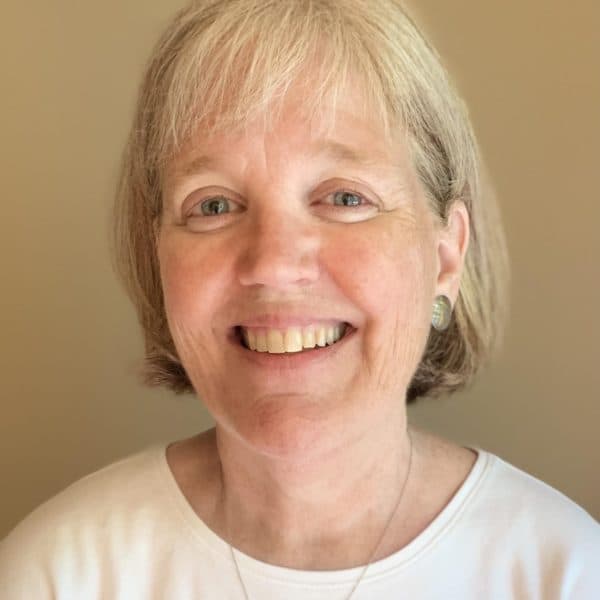Advertisement
Commentary
I’ve lugged my books through 9 moves. I can’t leave them behind

I’m in the midst of a terrible breakup. With my bookshelves.
Over the past 15 years, I have moved nine times. Nearly all of these transitions were made at the request of my employer, which meant someone else bore the brunt of the financial cost. But the toll of such frequent change cannot be reduced to mere dollars and cents. All this physical upheaval has landed me in a vat of emotional quicksand.
At every stage of this novenary process, I have assessed each of my possessions in an effort to discern their enduring value, sentimental or otherwise. And therein lies the rub. If moving meant simply throwing lock, stock and barrel into a box and carting it to a new location, that would be one thing. But for me, the heavy lifting occurs long before I ever reach for the packing tape.
This is never more apparent than when staring down the endless rows of books that litter my home. I blame my mother for my obsession with the written word, a passion that borders on religious fanaticism. Her love of reading was imprinted in her DNA and thus in mine. Libraries were our cathedrals and books our most revered companions.
As move number 10 quickly approaches I am, once again, tasked with separating my literary wheat from the chaff.
Libraries were our cathedrals and books our most revered companions.
I began this most recent process of discernment with the worn volumes of my youth. First up, the copy of "Charlie and the Chocolate Factory" my mother used to read to my brother and me while we waited for the Howard Johnsons' waitresses to serve our grilled cheese sandwiches. We made this pilgrimage nearly every Friday night, saving my Catholic mother from preparing an endless parade of tuna casseroles. I would slide into the gaudy orange booths knowing I was in for a treat, the fantastical story of a place filled with candy.
Next on the shelf was a copy of "The Little Prince," adorned with such striking illustrations I never grew tired of its pages. Tales of the mischievous "Eloise" followed, the reason behind my lifelong fascination with New York City, and of course, a slew of Nancy Drew hardcovers whose battered yellow spines stand at attention like toy soldiers. Nancy was my first girl crush. She was smart and seemingly unafraid of the many adventures that came her way. I often read of her escapades by flashlight in an attempt to mimic her detective vibe. This section was my holy grail. Dispensing of any of these was unthinkable.
Then came the classics. For decades I have toted around various tomes, some of which I have read, others which have remained stubbornly in the queue. Tolstoy’s "War and Peace" lives among the neglected, along with a compendium of Shakespeare’s plays. I also have books I consider contemporary classics, including "Beloved" by Toni Morrison and the often-maligned "Catcher in the Rye." But the golden nugget of this collection remains Daphne du Maurier’s "Rebecca." Although written in 1938, its contemporary flavor has returned now that the term “gaslighting” has become part of our everyday lexicon.
Many who know me would be surprised by the bevy of Southern writers whose work sits atop my shelves. Margaret Mitchell’s epic "Gone with the Wind" was my first dalliance in this genre. Then came countless evenings turning the pages of William Faulkner and Flannery O’Connor, prose filled with the smell of magnolia and steamy air. I love my ghostly collection of photographs by Eudora Welty titled "Country Churchyards," along with a stack of offerings by Pat Conroy. His poignant musings captured in "My Reading Life" are a love letter to book lovers everywhere, including me.
Then came countless evenings turning the pages of William Faulkner and Flannery O’Connor, prose filled with the smell of magnolia and steamy air.
But my biggest soft spot is reserved for those who write of the titans of history, particularly politicians. The autobiographical musings of Elie Wiesel and Anne Frank sit beside Doris Kearns Goodwin and David McCullough, along with books featuring South Boston’s checkered past: J. Anthony Lukas’ "Common Ground," Dick Lehr’s "Black Mass," and Michael Patrick MacDonald’s "All Souls," among others. As someone who lives a stone’s throw away from the former home of Louise Day Hicks, reminders of the complicated history of Southie abound.
The top corner of my shelf is reserved for books sporting an author’s autograph. I own a few books signed by the great John Updike. I coaxed Desmond Tutu during his visit to the Episcopal Divinity School into scribbling his name across the title page of his book "No Future Without Forgiveness." The bombastic Peter Gomes placed his John Hancock inside the cover of my copy of "The Good Book." And I waited in a crazy long line to secure Hillary Clinton’s moniker during the book launch of her autobiography "Living History."
But my most treasured autograph resides on the pages of my Episcopal prayer book, a splash of black ink care of primatologist Jane Goodall. She had come to speak at the school where I was then working. After the crowd had dissipated, I had the chance to talk with her about discerning one’s vocational call. Her signature remains a keepsake from that treasured conversation.
Despite the star power of that upper ledge, my heart remains elsewhere. Over and over again, I return to the wisdom of Anne Lamott, Sue Monk Kidd, Kathleen Norris, Cheryl Strayed, Glennon Doyle, Nora Gallagher, Roxanne Gay and Caroline Knapp. These women are my literary “ride and die.” I certainly couldn’t part with any of these.
In the end, I donated a few guidebooks, a Spanish dictionary and a handful of textbooks I’d been carting around since high school to the nearest Little Free Library. After so many previous moves, there just isn’t a lot of fat left on the bone.
The battle between my aging back and my imagination was a rout. When it comes to books, it’s never a fair fight.
